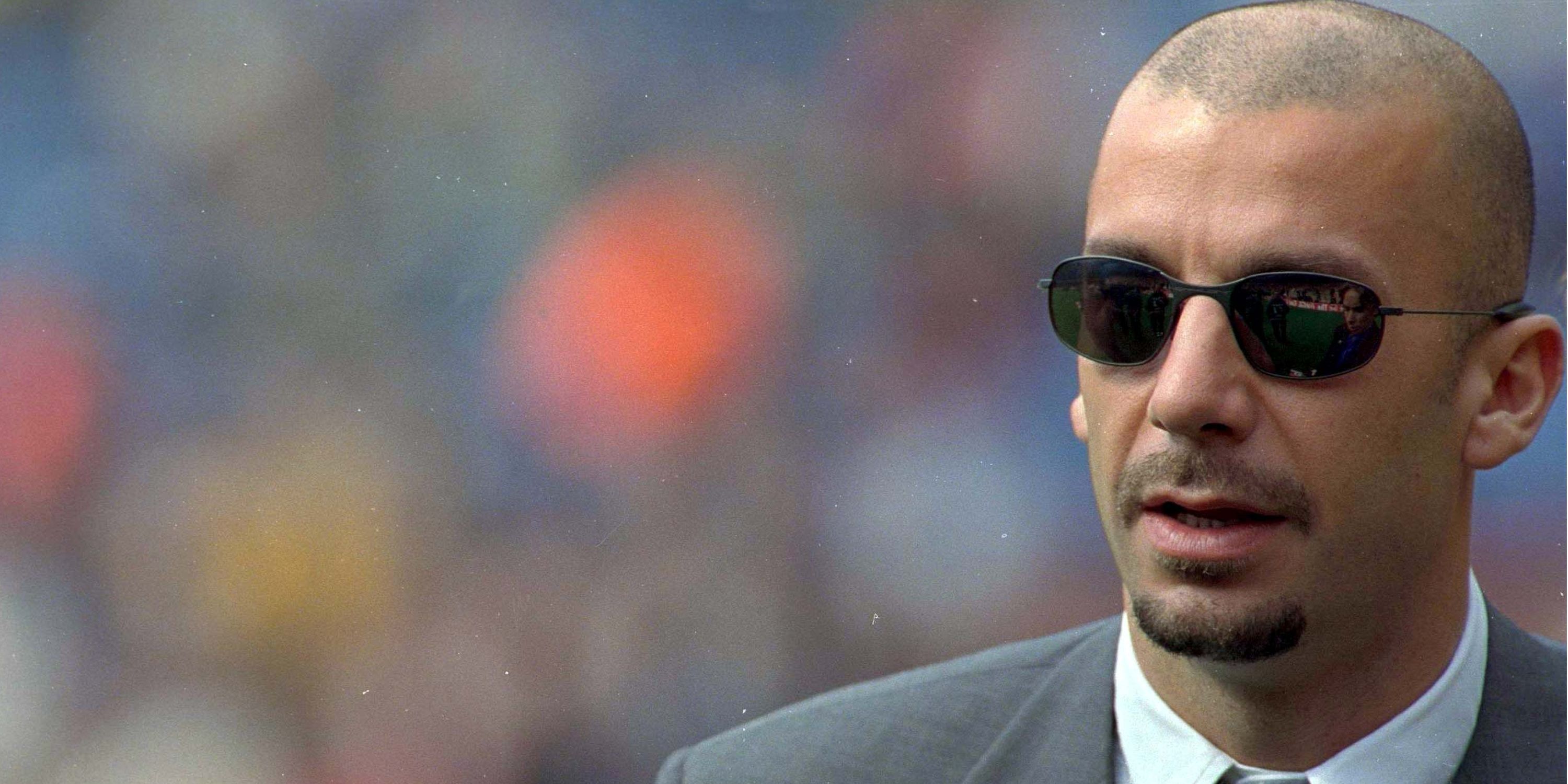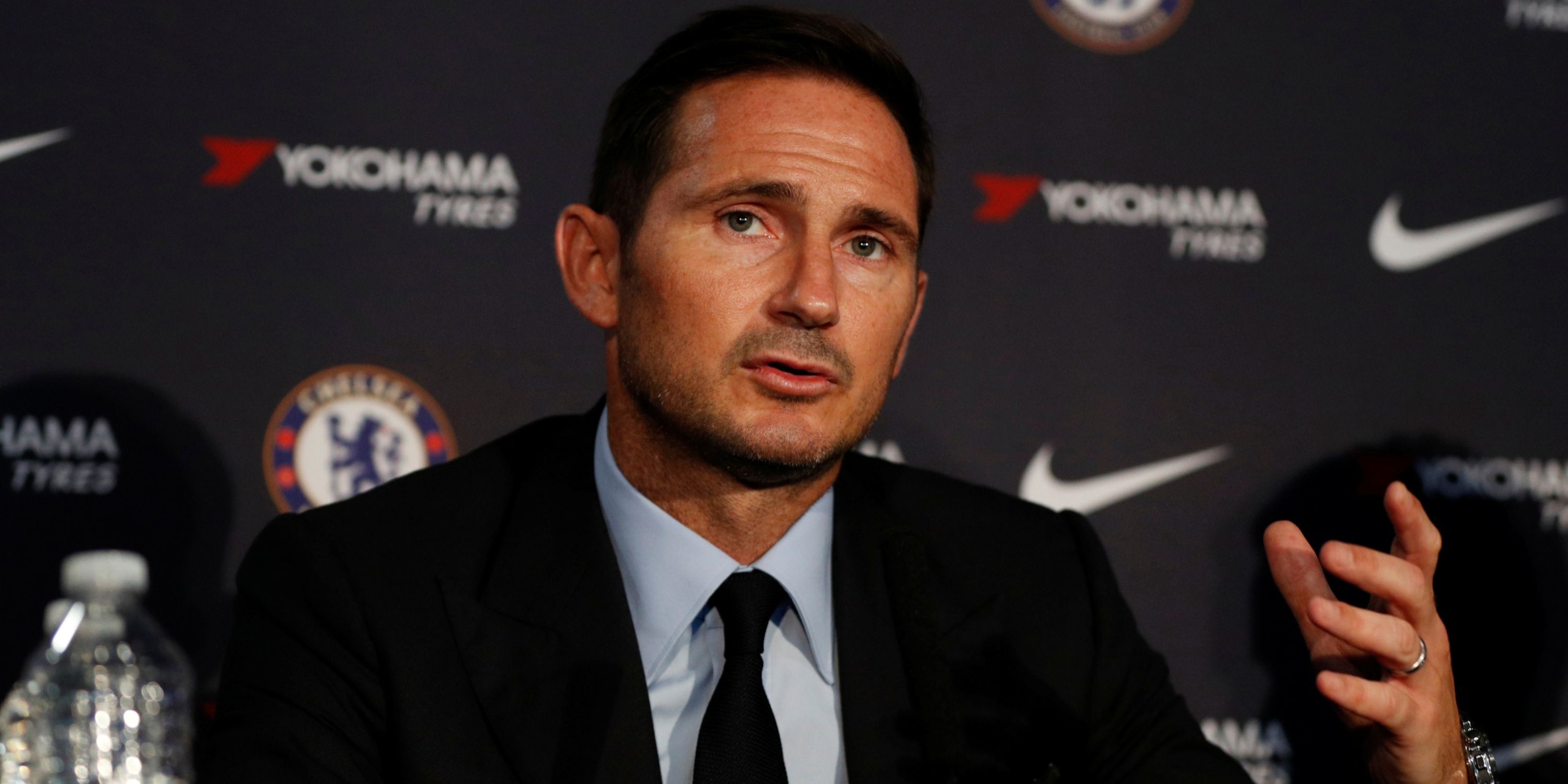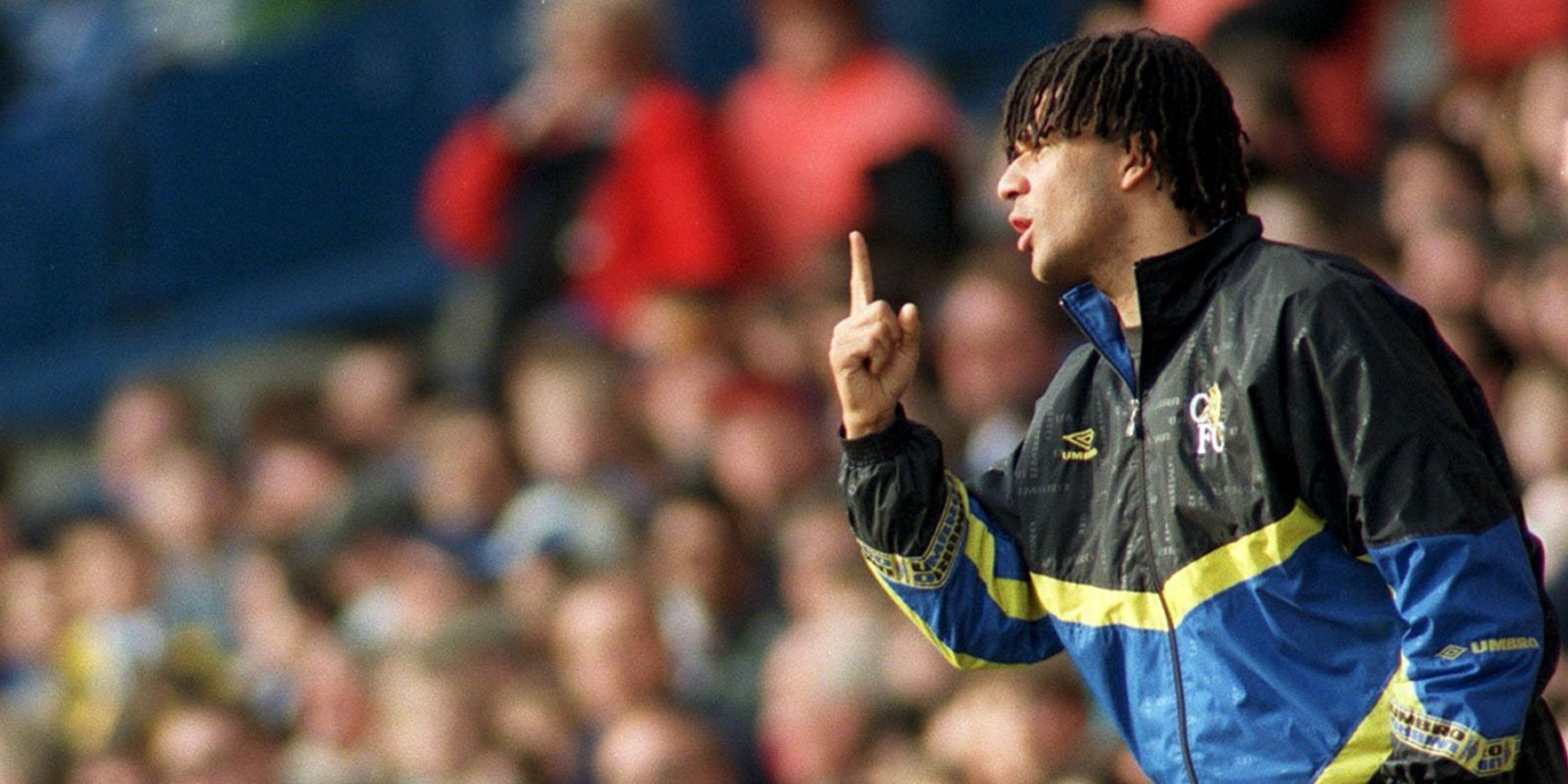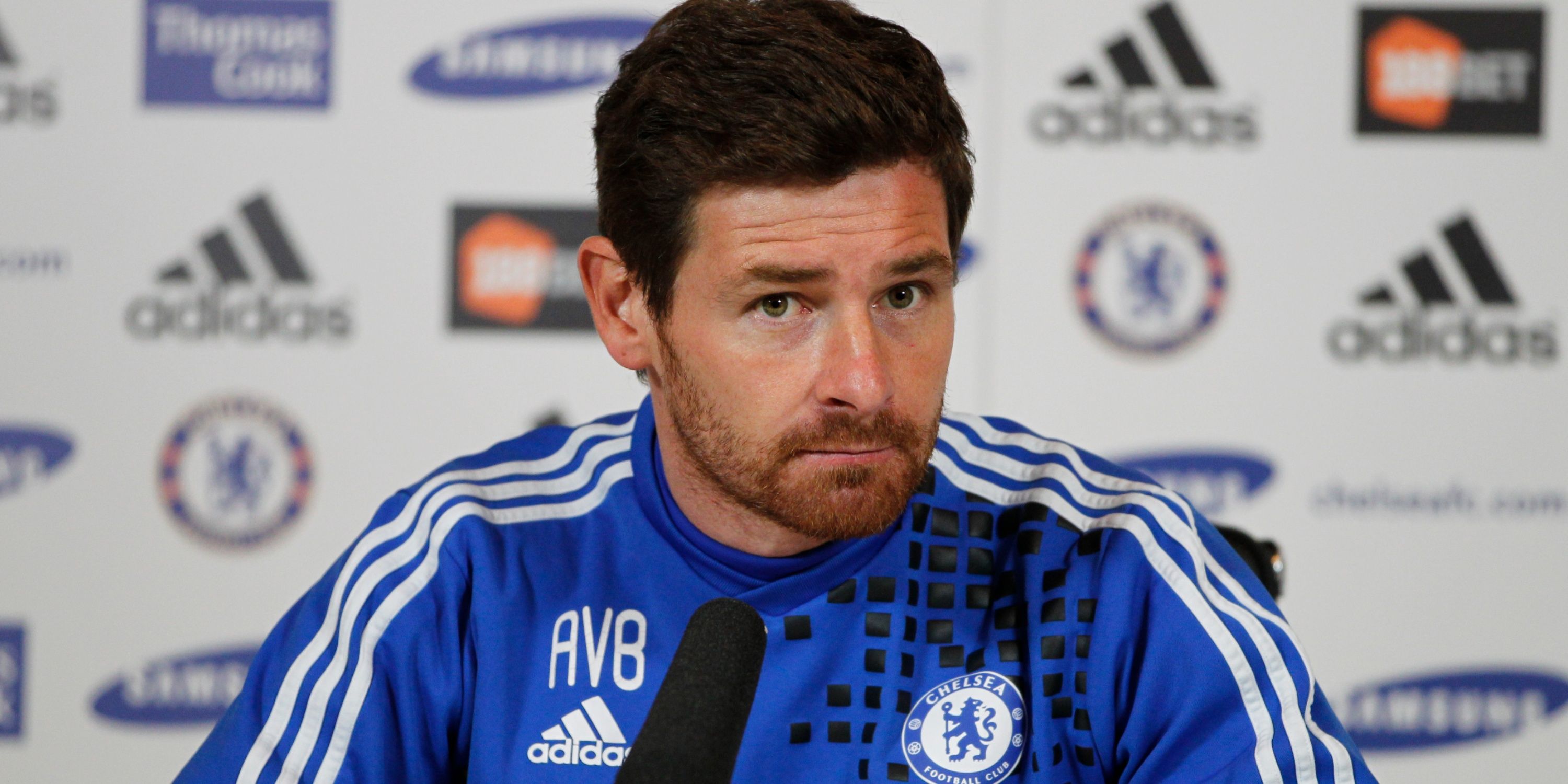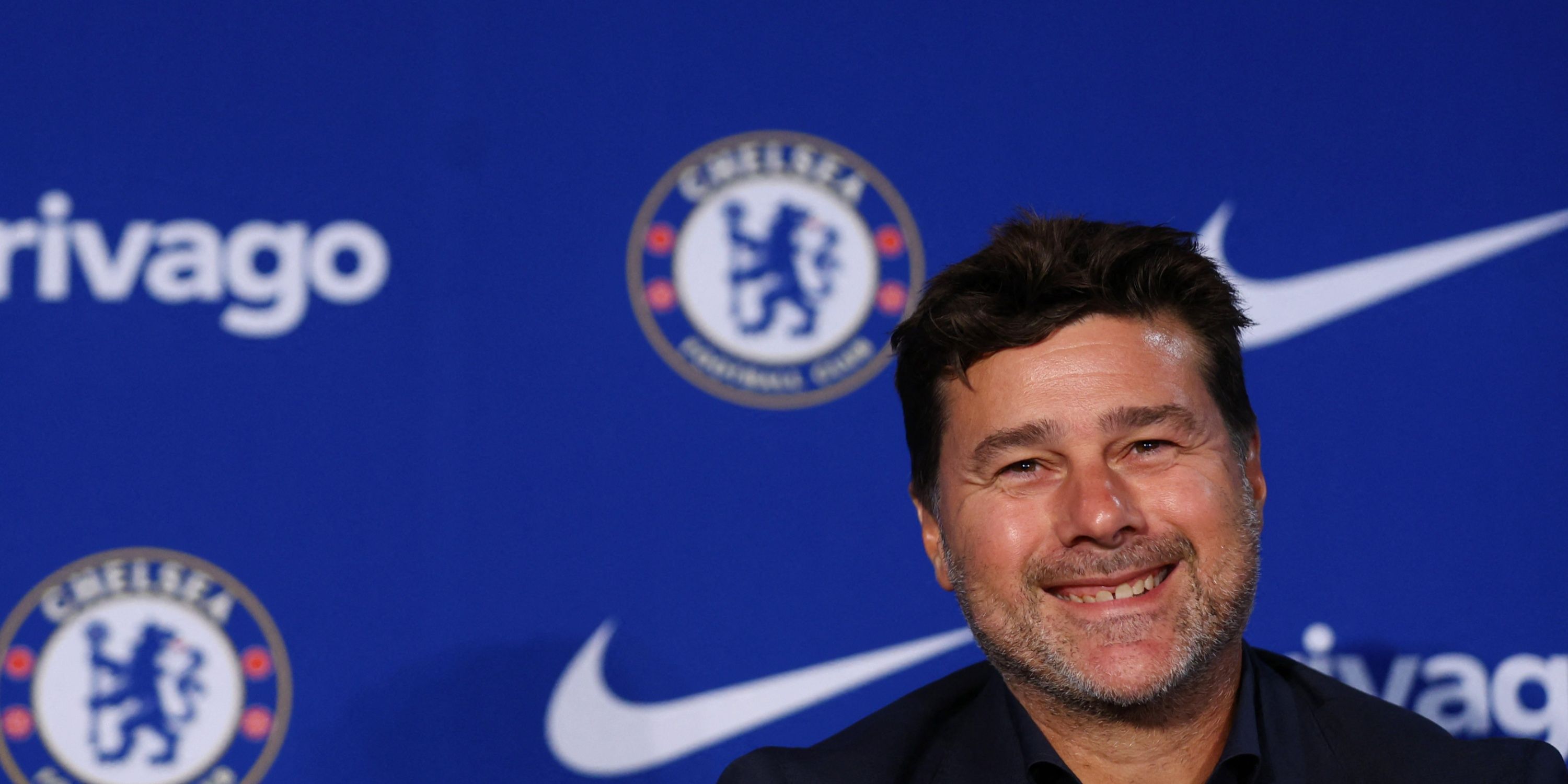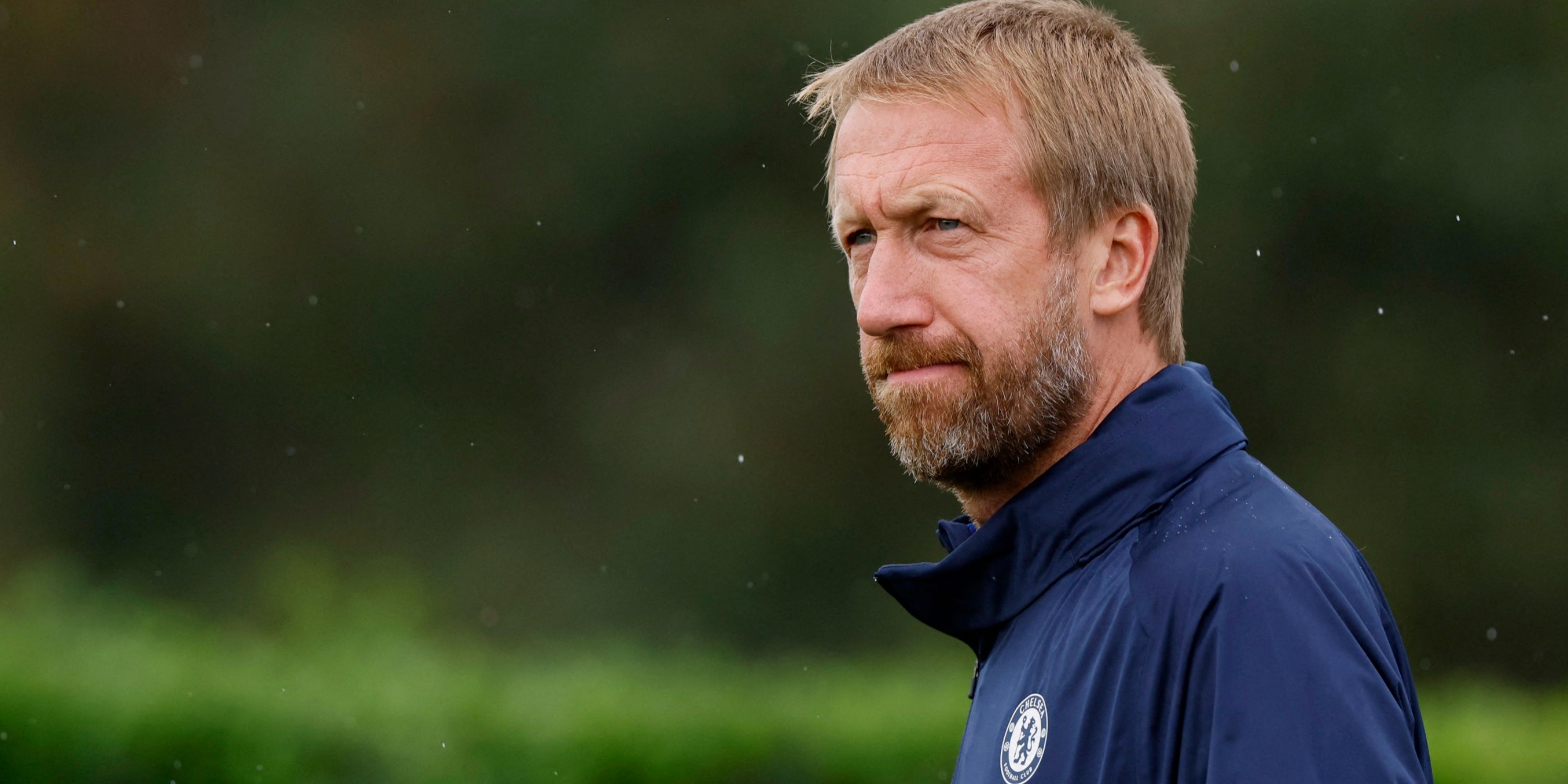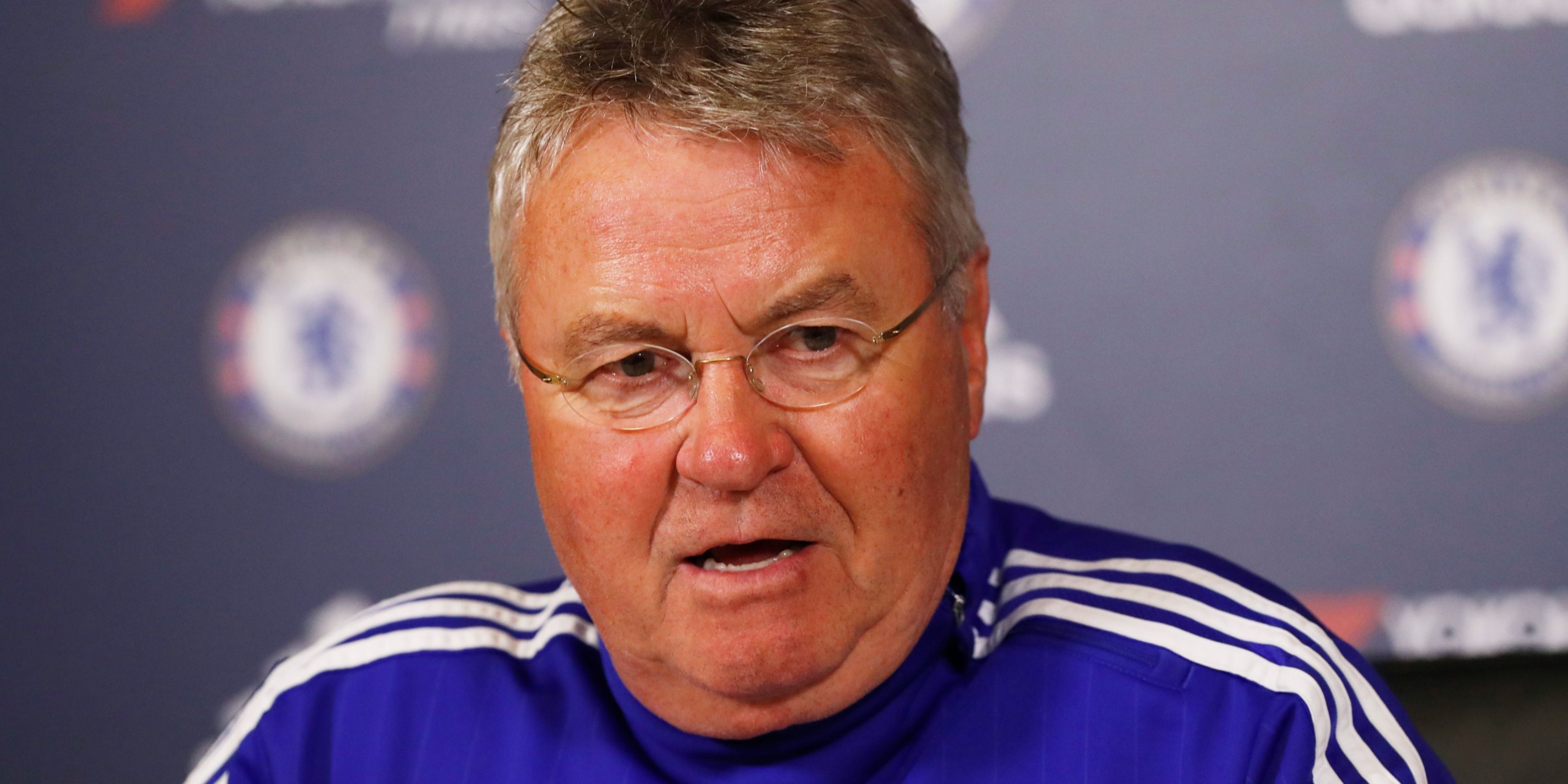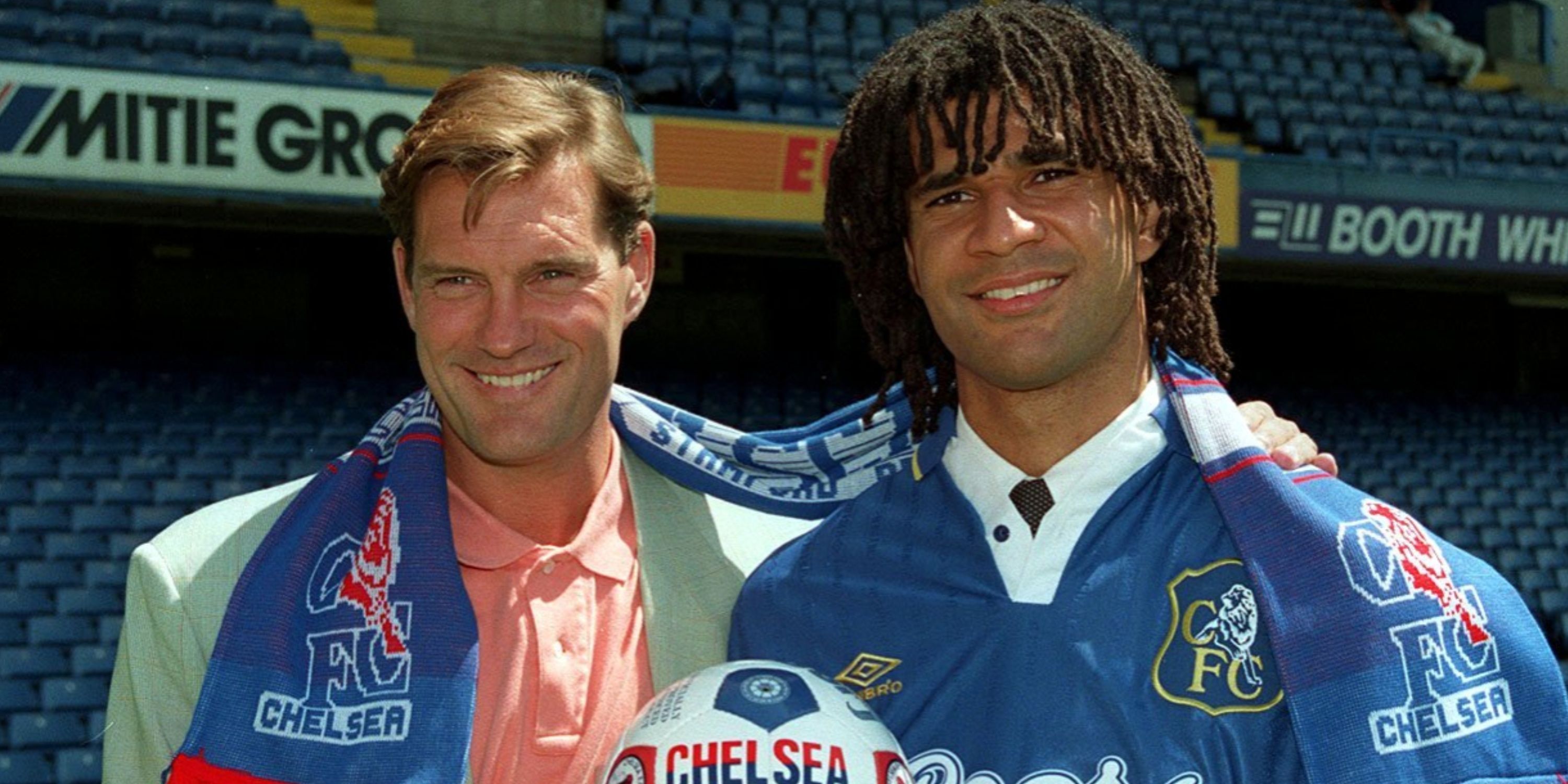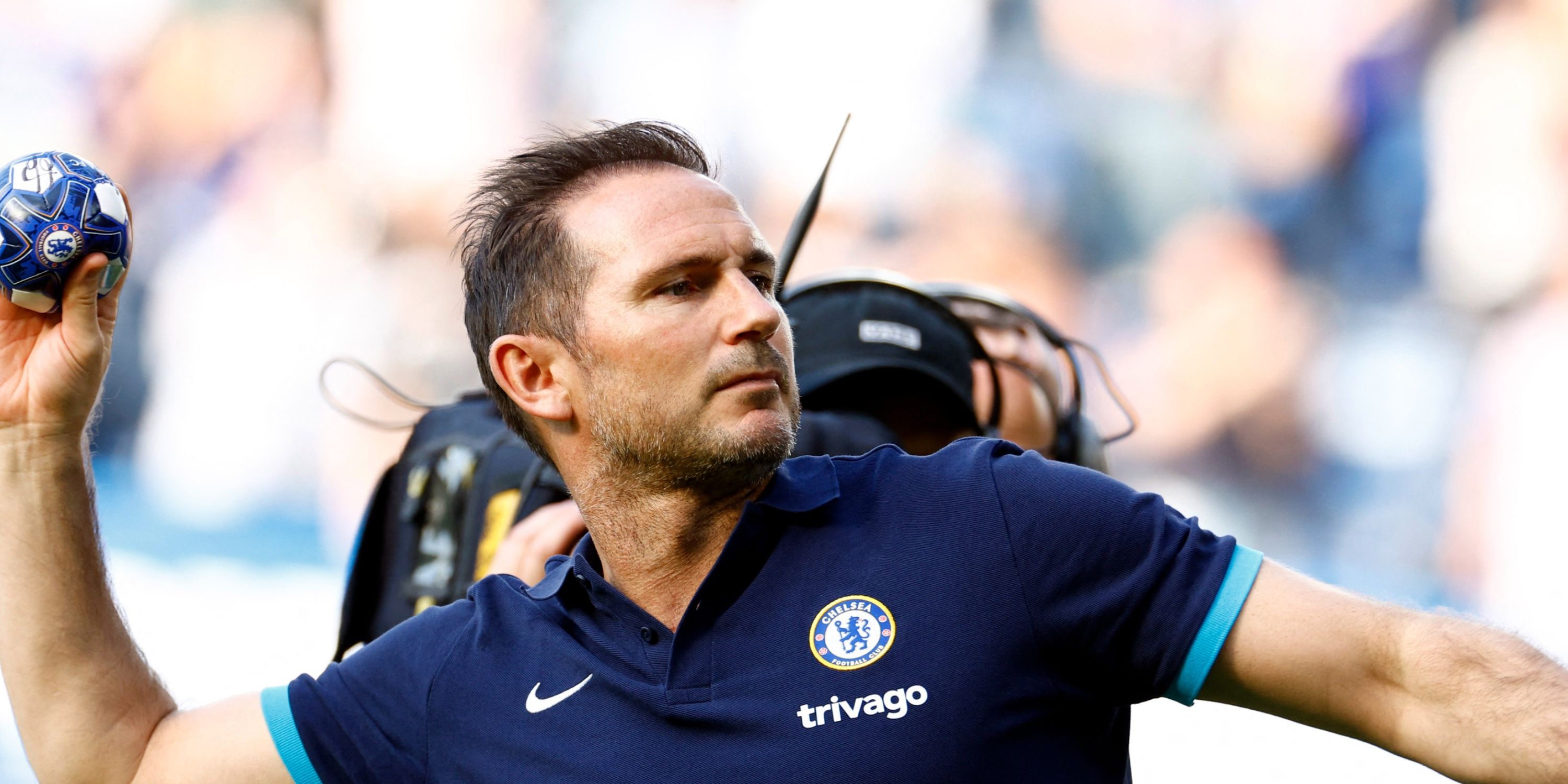[ad_1]
Current Chelsea boss Mauricio Pochettino took the job knowing full well the club is a bit of a mess. After a summer that saw hundreds of millions of pounds change hands, the west London club have an almost entirely new squad.
All this upheaval means results will inevitably take time, and Pochettino only has a win percentage of just under 50% so far, but he’s not the worst.
Football FanCast has run down the worst Chelsea managers in the Premier League era by win percentage. For this list, each tenure is judged independently, so those with multiple spells in the Stamford Bridge dugout have an extra chance to make this wall of shame, though they must have lasted at least ten games in the hotseat.
|
Chelsea’s ten worst managers by win percentage |
|
|---|---|
|
Claudio Ranieri |
54% |
|
Gianluca Vialli |
53% |
|
Frank Lampard (1st spell) |
52.4% |
|
Ruud Gullit |
51.7% |
|
Andre Villas-Boas |
50% |
|
Mauricio Pochettino |
49% |
|
Graham Potter |
39% |
|
Guus Hiddink (2nd interim spell) |
37% |
|
Glenn Hoddle |
33% |
|
Frank Lampard (interim spell) |
9% |
10
Claudio Ranieri
September 2000 to May 2004 – 54%
|
Matches |
199 |
|---|---|
|
Won |
107 |
|
Drew |
46 |
|
Lost |
46 |
|
Goals scored |
358 |
|
Goals against |
197 |
|
Points per match |
1.84 |
Before he was performing miracles at Leicester City, Ranieri was arguably the most unfairly treated manager in Chelsea’s history. He was Roman Abramovich’s first victim, sacked to make way for Jose Mourinho. If only he was younger and trendier.
He initially struggled to overcome the language barrier, but enlisted players who could translate Italian and Spanish on the training pitch. In his first season, Chelsea secured a UEFA Cup spot, finishing sixth. Ranieri was tasked with lowering the squad’s average age and made significant signings in the summer of 2001, including Frank Lampard and Emmanuel Petit.
The team’s league performances remained inconsistent, and despite reaching the FA Cup Final in 2002, they ultimately fell short of silverware. Ranieri, dubbed “The Tinkerman” for his squad rotations, led Chelsea to Champions League qualification in the 2002–03 season. With Roman Abramovich’s takeover in 2003, Ranieri faced rumours of replacement, but his strategic signings propelled Chelsea to a runner-up finish in the Premier League in 2003/04.
The team also reached the Champions League semi-finals that year, but Ranieri was relieved of his coaching duties on 31st May, 2004, with José Mourinho succeeding him. Despite his departure, the core of Chelsea’s subsequent title-winning teams was shaped by players brought in or nurtured by the Italian.
9
Gianluca Vialli
February 1998 to September 2000 – 53%
|
Matches |
135 |
|---|---|
|
Won |
72 |
|
Drew |
38 |
|
Lost |
25 |
|
Goals scored |
214 |
|
Goals against |
114 |
|
Points per match |
1.88 |
Just 1% below Ranieri comes Chelsea legend Gianluca Vialli. When Ruud Gullit was dismissed as Chelsea manager, 33-year-old Gianluca Vialli took over as player-manager, becoming the Premier League’s first Italian boss.
Chelsea, already in the semi-finals of the League Cup and the quarter-finals of the European Cup Winners’ Cup, won both competitions under Vialli’s leadership, also securing a fourth-place finish in the Premier League. Vialli set a record as the youngest manager to win a UEFA competition by guiding Chelsea to victory in the Cup Winners’ Cup final.
The next season, Chelsea won the UEFA Super Cup and finished third in the Premier League. Vialli concluded his playing career for Chelsea, marking his final appearance by scoring against Derby County. In the following season, Chelsea made their UEFA Champions League debut, reaching the quarter-finals.
Despite finishing fifth in the Premier League, Vialli led Chelsea to victory in the 2000 FA Cup final. However, he was sacked five games into the 2000/01 season due to a turbulent start and conflicts with players, including Gianfranco Zola, Didier Deschamps, and Dan Petrescu.
8
Frank Lampard
July 2019 to January 2021 – 52.4%
|
Matches |
84 |
|---|---|
|
Won |
44 |
|
Drew |
15 |
|
Lost |
25 |
|
Goals scored |
171 |
|
Goals against |
116 |
|
Points per match |
1.75 |
A win rate of over 50% in the Premier League is incredibly impressive, but this is considered sub-par for Chelsea. Things may have gone downhill for him since, but Lampard’s first stint as Chelsea manager will have a lasting impact on the club for years to come.
The 2019/20 season saw a challenging start with a 4-0 loss to Manchester United and a defeat to Liverpool in the UEFA Super Cup following a summer transfer window while under an embargo. Lampard secured his first Premier League victory against Norwich City and received the Manager of the Month award for October.
Chelsea finished fourth in the Premier League and reached the FA Cup Final, losing to Arsenal. In the following season, despite early success, a run of poor results led to Lampard’s dismissal in January 2021. The decision reportedly involved disagreements over the club’s transfer policy, with Lampard advocating for specific signings that were not approved. Thomas Tuchel replaced him as Chelsea’s manager.
7
Ruud Gullit
May 1996 to February 1998 – 52%
|
Matches |
89 |
|---|---|
|
Won |
46 |
|
Drew |
15 |
|
Lost |
28 |
|
Goals scored |
172 |
|
Goals against |
119 |
|
Points per match |
1.72 |
Ruud Gullit was one hell of a player. Back in the day, you could stick him anywhere and he would still be the best player on the pitch. Unfortunately, he just wasn’t such a fantastic coach. Chelsea was his first job as player/manager, taking over from Glenn Hoddle.
His first season in charge as player-manager proved successful as he led Chelsea to an FA Cup triumph in 1997, securing the club’s first major trophy in 26 years. Notably, he became the first non-British Isles and first black manager to achieve such success in British football.
Chelsea also secured a commendable sixth-place finish in the Premiership. However, despite Chelsea’s second-place standing in the Premier League and advancement to the quarter-finals in two cup competitions by the following February, Gullit was dismissed.
The reason cited was an alleged dispute with the club’s board over compensation, a claim contested by Gullit. Gianluca Vialli, whom Gullit had helped bring to the club, succeeded him and guided Chelsea to UEFA Cup Winners’ Cup and League Cup victories that season.
Gullit’s tenure concluded before the second leg of the League Cup semi-final against Arsenal. Following his controversial dismissal, Chelsea chairman Ken Bates expressed displeasure with Gullit’s perceived arrogance, stating, “I didn’t like his arrogance – in fact, I never liked him.”
6
Andre Villas-Boas
June 2011 to March 2012 – 50%
|
Matches |
40 |
|---|---|
|
Won |
20 |
|
Drew |
10 |
|
Lost |
10 |
|
Goals scored |
73 |
|
Goals against |
46 |
|
Points per match |
1.75 |
The last time Chelsea brought in a young, charismatic coach from Porto, it went pretty well. Things with Andre Villas-Boas, however, soured pretty quickly. Chelsea paid a then-record £13.3m fee to bring him to Stamford Bridge, but he tried to change too much too quickly and was let go a few months later.
Villas-Boas enjoyed success in pre-season, winning all their fixtures and conceding just one goal. His Premier League debut resulted in a 0–0 draw at Stoke City, when he praised the Potters’ strong home defence. Chelsea then secured a 2–1 victory against West Bromwich Albion.
However, challenges emerged after a 3–1 defeat to Manchester United in September, marking Chelsea’s first loss of the season and Villas-Boas’s first league defeat in 39 matches. The pressure intensified as Chelsea dropped out of the Premier League’s top four after a 2–0 defeat to Everton in February. Following a 1–0 loss to West Brom on 4th March, Chelsea relieved Villas-Boas of his managerial duties, appointing Roberto Di Matteo as caretaker manager until the season’s end.
5
Mauricio Pochettino
July 2023 to present – 49%
|
Matches |
45 |
|---|---|
|
Won |
22 |
|
Drew |
9 |
|
Lost |
14 |
|
Goals scored |
91 |
|
Goals against |
70 |
|
Points per match |
1.67 |
Mauricio Pochettino has so far failed to fully turn things around following the Blues’ disastrous 2022/23 campaign. While Chelsea continued to spend freely in his first summer in charge, that has not seen results improve, thus seeing the Argentinian rank among the club’s less impressive bosses.
That said, his first season at the helm has seen the club reach Wembley twice, and even if both trips to the national stadium have ended in defeat this term, that points to a team that can grind out results.
Unfortunately, the team is nowhere near consistent enough, and this was on show once again in their recent defeat to Arsenal, where they were missing star man Cole Palmer. The 5-0 reverse at the Emirates Stadium leaves Pochettino with a win rate below 50% after almost a year in charge, though he is at least comfortably ahead of his predecessor…
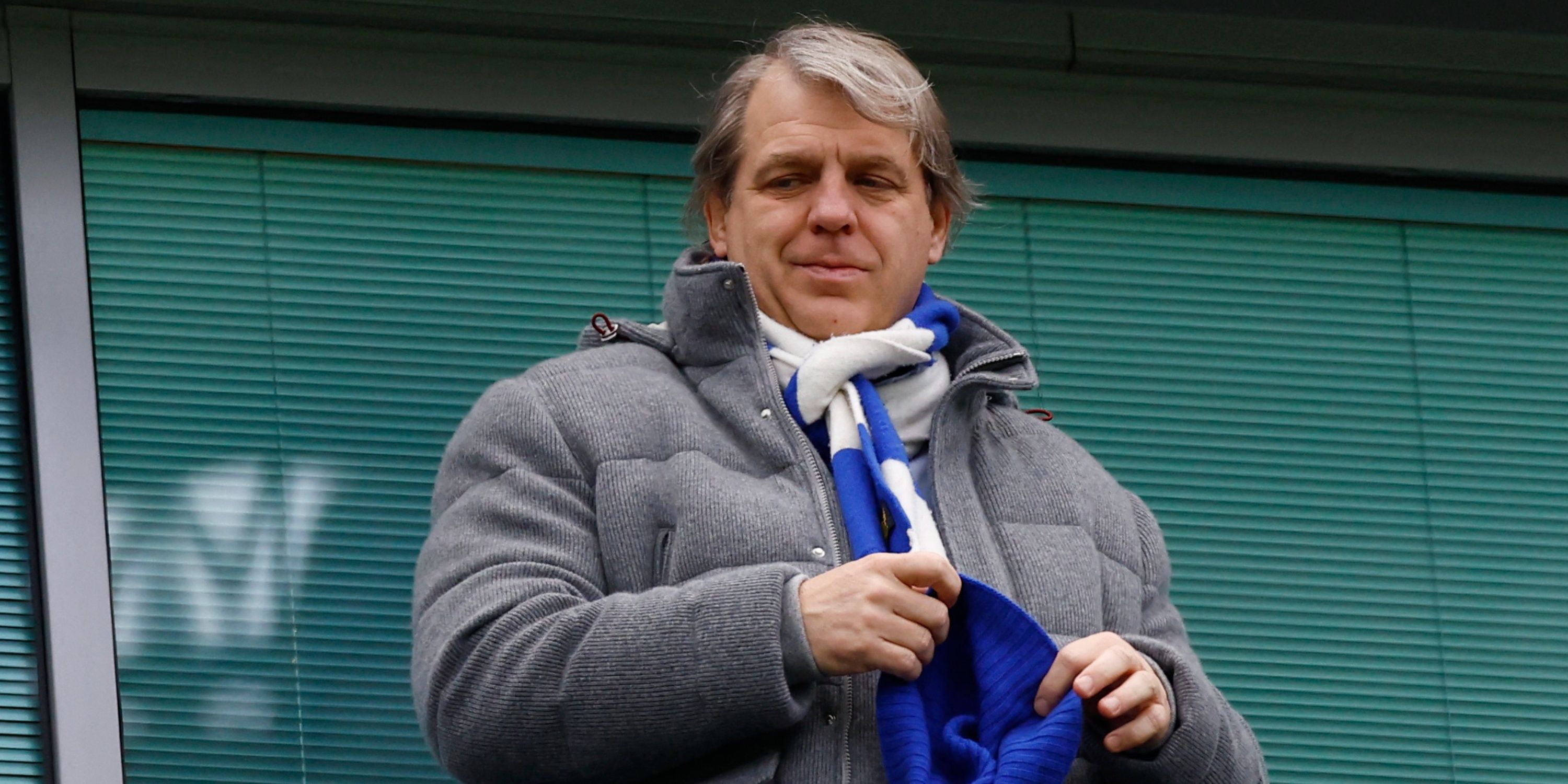
Related
Chelsea: Every signing Todd Boehly has made at Stamford Bridge
The full list is absolutely crazy!
4
Graham Potter
September 2022 to April 2023 – 39%
|
Matches |
31 |
|---|---|
|
Won |
12 |
|
Drew |
8 |
|
Lost |
11 |
|
Goals scored |
33 |
|
Goals against |
31 |
|
Points per match |
1.42 |
Poor Graham Potter. He was meant to be the gentle, considerate, modern manager who would lead Chelsea into a new era under new ownership. Potter is undeniably a fantastic coach, the job he did at Brighton has helped them press on in a way that no one would have expected.
Succeeding Champions League-winning coach Thomas Tuchel mid-season, Potter’s Chelsea laboured to a debut draw against Red Bull Salzburg in the Champions League, Potter then secured his first victory on 1st October, with Chelsea overcoming Crystal Palace 2–1, featuring goals from Pierre-Emerick Aubameyang and academy graduate Conor Gallagher.
However, probably the most significant setback occurred later that month , as Chelsea suffered a 4–1 defeat against Brighton, Potter’s former club. Following Chelsea’s FA Cup third-round exit and 4-0 loss to Manchester City, Potter faced heightened scrutiny, and after a home defeat to Southampton on 18th February, some fans called for his resignation.
Despite these challenges, Potter guided Chelsea to the quarter-finals of the Champions League, triumphing over Borussia Dortmund along the way. Nevertheless, after a 2–0 loss to Aston Villa on 2nd April, Potter was dismissed, having managed 31 games with 11 losses, leaving Chelsea in 11th place at the time.
3
Guus Hiddink
December 2015 to June 2016 – 37%
|
Matches |
27 |
|---|---|
|
Won |
10 |
|
Drew |
11 |
|
Lost |
6 |
|
Goals scored |
52 |
|
Goals against |
34 |
|
Points per match |
1.52 |
Guus Hiddink was Roman Abramovich’s firefighter. Whenever Chelsea had got rid of a manager, and they needed someone to come in and calm things down after a massive falling out between manager and players, Hiddink was the man.
Following the (second) dismissal of José Mourinho, Hiddink took over as first-team manager at Chelsea until the end of the 2015/16 season, marking his return to the club in a similar capacity to his 2009 stint. Expressing his excitement about returning to Stamford Bridge, Hiddink stated, “I am looking forward to working with the players and staff at this great club and especially renewing my wonderful relationship with the Chelsea fans.”
He may have had a relatively low win percentage, but Hiddink achieved a new Premier League record for the longest unbeaten streak by a new manager, going 12 games without a defeat after a home draw against Stoke City. Under his management, Chelsea ascended from 16th to 10th in the Premier League by the end of the season.
2
Glenn Hoddle
June 1993 to May 1996 – 33%
|
Matches |
149 |
|---|---|
|
Won |
49 |
|
Drew |
50 |
|
Lost |
50 |
|
Goals scored |
185 |
|
Goals against |
184 |
|
Points per match |
1.32 |
Hoddle assumed the role of player-manager at Chelsea, accompanied by former Tottenham manager Peter Shreeves as his assistant. In their first season, Chelsea reached the FA Cup final, albeit only to suffer a 4–0 defeat to Manchester United, who had secured the double that year.
Despite the loss, Chelsea earned a European Cup Winners’ Cup spot, marking their return to European competition after a two-decade absence. The league performance placed them 14th, noteworthy for two victories over double-winning Manchester United that season, both secured with 1–0 scores in September and March, courtesy of goals by Gavin Peacock.
Under Hoddle’s guidance, Chelsea made it to the semi-finals of the 1994/95 European Cup Winners’ Cup, narrowly losing to Real Zaragoza, the eventual champions who defeated Arsenal in the final. Hoddle continued to lead Chelsea to the FA Cup semi-finals in 1995/96, but struggled to propel them beyond 11th in the Premier League, a position they held three times in four years.
Nevertheless, Hoddle’s tenure established Chelsea as a formidable presence in cup competitions and facilitated the recruitment of top-notch players like Ruud Gullit, Mark Hughes, Dan Petrescu, Gavin Peacock, David Rocastle and Mark Stein.
1
Frank Lampard
April 2023 to May 2023 – 9%
|
Matches |
11 |
|---|---|
|
Won |
1 |
|
Drew |
2 |
|
Lost |
8 |
|
Goals scored |
9 |
|
Goals against |
21 |
|
Points per match |
0.45 |
It must break the heart of every Chelsea fan across the globe to see Super Frankie Lampard at the bottom of this list. When Graham Potter was sacked in April 2023, Lampard was brought in to try and steady the ship following an unsuccessful spell as Everton manager. Unfortunately for everyone involved, it didn’t really work out.
Stepping in as the caretaker manager until the end of the 2022/23 season, Chelsea somehow looked worse under the ex-midfielder and a continued decline in form under Lampard’s tenure, resulting in their first bottom-half finish since 1996.
The team also recorded an all-time low in points and goals scored during the Premier League era. As a result, Lampard’s second managerial stint at Chelsea is the worst for any coach to have taken charge of more than three games. With just one victory in his 11 matches in charge, Lampard’s win rate stood at 9%.
[ad_2]


